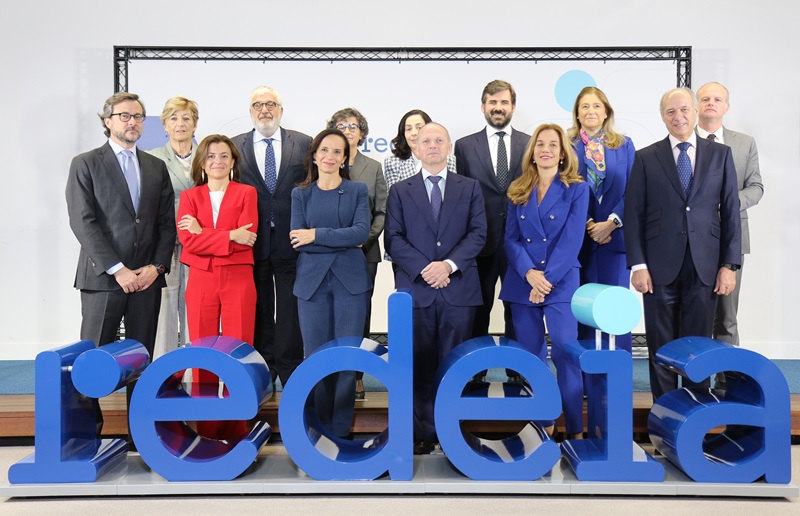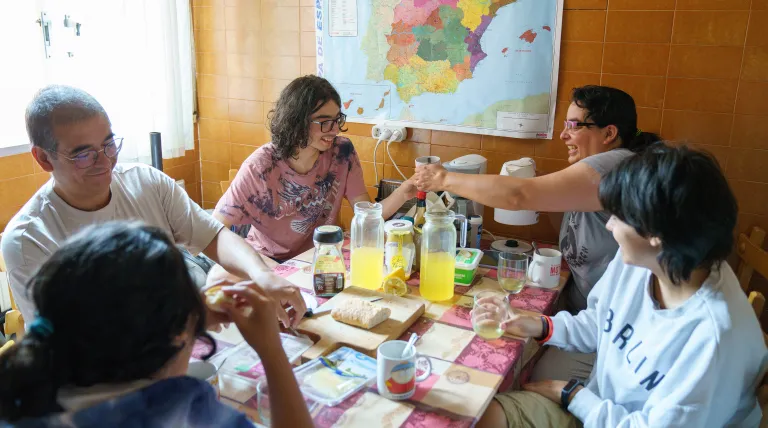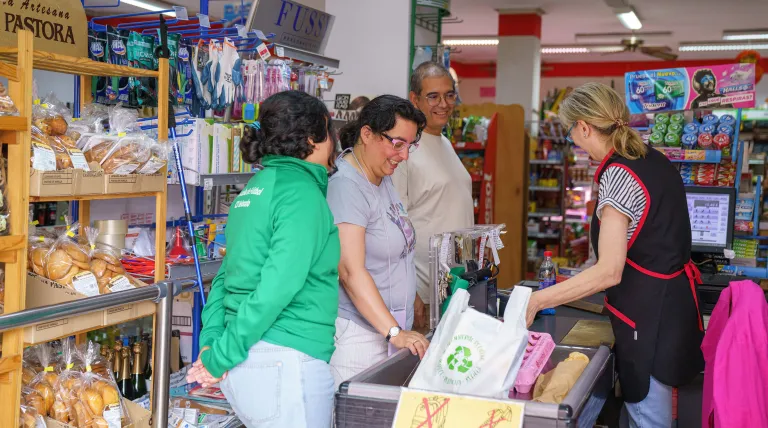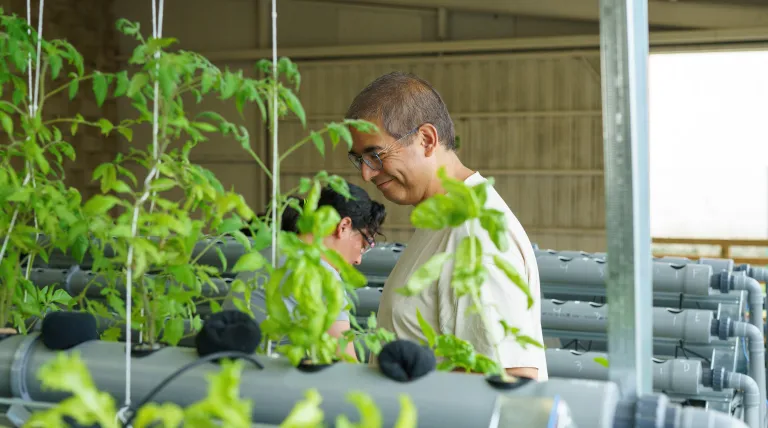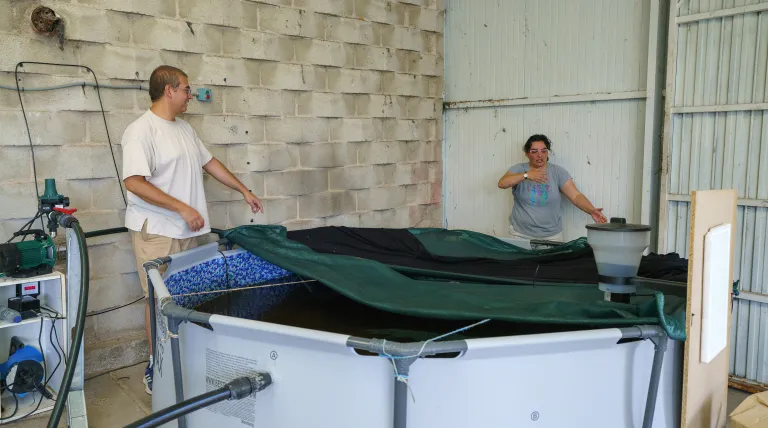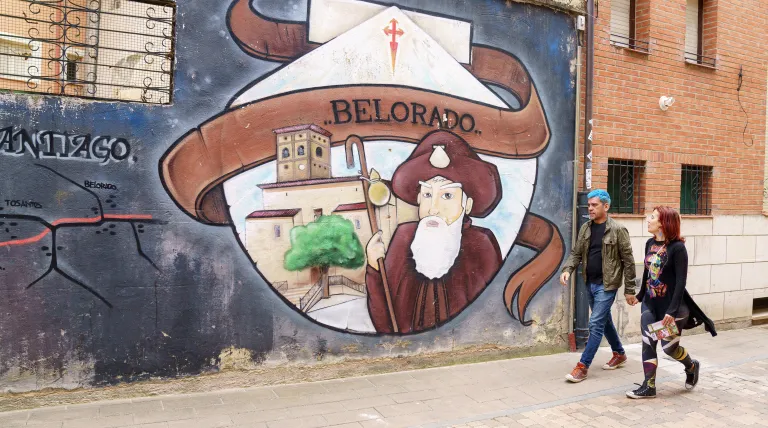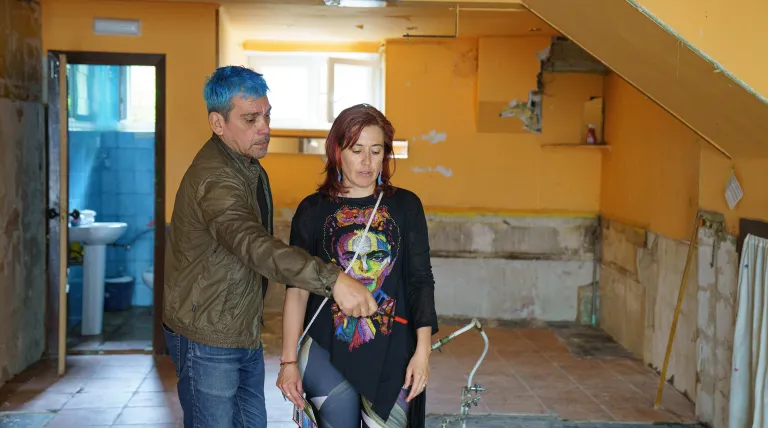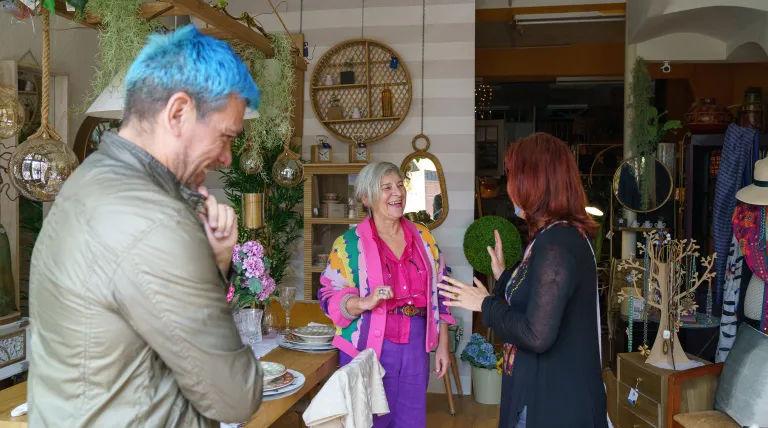We are a global operator of essential infrastructure
- The 'holapueblers' have already set up 30 businesses, including rural accommodation, a bakery, a toy workshop, and a centre for the elderly
- The aim is to achieve the perfect fit: holapueblers finding the right village for their project and local councils attracting local residents to generate business activities

Holapueblo, the platform to fight depopulation, driven by Redeia, AlmaNatura, and IKEA in collaboration with Triodos Bank, has already managed to get 133 people (51 families) to settle in a municipality in depopulated Spain, and 30 businesses created by these new inhabitants, already known as 'holapueblers', are fully operational. To be more precise, 34 towns and villages have received new inhabitants as a result of this initiative, considering that three families have moved to some of these areas.
80% of the 'holapueblers' are between 35 and 50 years old, and 53% are couples with children. The most significant type of entrepreneurship, representing 71% of the cases, comes from the service sector, which offers rural accommodation, a bakery, a toy workshop, or a care centre for the elderly, among others.
Holapueblo, which will soon be launching its fourth edition, has so far assisted 148 municipalities affected by depopulation issues and 114 families seeking to change their lives by setting up and starting a business in rural areas, although almost 14,000 people have contacted the platform during this time.
“Holapueblo provides advice and guidance throughout the whole process to local councils and potential residents. The objective is to achieve the best fit: 'holapueblers' finding the most suitable location for their new life project and municipalities attracting and establishing new residents capable of generating economic activities and even creating jobs," explained Juanjo Manzano, co-founder of AlmaNatura.
“Holapueblo's impact involves more than just attracting new inhabitants to rural Spain. Municipalities are reducing the depopulation-related problems, such as the loss of economic activity and the disappearance of services such as educational and health centres, banks, and transport, which would leave their residents in a disadvantaged position compared to the urban population", explains Antonio Calvo Roy, Redeia's Director of Sustainability.
Space recovery and fund-raising campaigns for entrepreneurs
Furthermore, the platform has recovered two abandoned municipal spaces for its neighbours in the towns of Almedina (Ciudad Real) and Jaraba (Zaragoza). In Almedina, it has refurbished the Al-Coworking Live space, a meeting point for collaborative work and digital inclusion to generate reactivating projects, while in the municipality of Zaragoza, it has refurbished the community cultural centre, the Casa de Jaraba, in which municipal associations can now carry out social, cultural, and educational activities. IKEA has carried out this regeneration project through the Reactivators Project.
“We want to support those municipalities committed to reactivating and revitalising spaces as a source of new entrepreneurship, areas that can act as a lever to bring about a positive transformation in order to make them a source of intercultural coexistence and with a clear vision of sustainability," stated Laura Escalante, Sustainability Project Leader at IKEA.
Furthermore, four entrepreneurship initiatives created in the framework of Holapueblo have benefited from the match-funding initiative launched by the Triodos Foundation, in which Triodos Bank has contributed the same amount for each individual donation to the projects. These include a travelling optician's shop in Tierras de Campos (Valladolid), a project to improve the wellbeing of local residents by means of ceramics in Galaroza (Huelva), an eco-gourmet restaurant in Arroyomolinos de León (Huelva) and the Celtiberian Technology Centre in Tragacete (Cuenca), a combination of a living history museum and experimental archaeology centre.
Gema and Marcelo, and Pablo, Alma, and their three children, the 'holapueblers' of Belorado (Burgos)
Belorado, in Burgos, is one of the municipalities that is proving to be particularly attractive. Two couples have already moved there: Gema Díaz and Marcelo Molina and Pablo Meltzer and Alma Meirelles with their three children; and this summer, Patricia Agresta and Andrés Puig will be arriving with their three children.
The municipality lost 371 registered inhabitants, and by means of various initiatives, such as Holapueblo, the population has been recovering and now exceeds 1,800. "We arrived from Chile, accompanying Pablo during a project he was undertaking with an NGO in Madrid. There, we saw the opportunity to relocate to a more economical place, friendlier for the children's growth, and where our business project, a hydroponics nursery, was also required, which would serve to boost the village's economy," explained Alma.
In the case of Gema and Marcelo, they arrived in Belorado after living in Guatemala, Madrid, and Segovia and looking for smaller places with fewer people, pollution, and traffic jams. They will soon open a spa for pilgrims and people from the region, leveraging Belorado as one of the French Camino de Santiago stops. "Holapueblo has helped us to place Belorado on the map with the business plan and to contact different people and the city council. They have helped us find our ideal village," remarked Gema.











